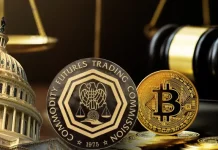
- South Korea ends 2018 ban, reopening VC funding access for emerging crypto startups.
- Updated rules align with global markets and reinforce oversight in the blockchain industry.
- Crypto firms gain venture benefits, fueling innovation and attracting more capital.
South Korea has lifted its 2018 restriction on cryptocurrency ventures, reopening access to venture capital (VC) for blockchain startups. The Ministry of SMEs and Startups confirmed on September 9 that the cabinet approved revisions to the Enforcement Decree of the Special Act on Promotion of Venture Businesses.
Starting on September 16th, crypto trading and brokerage will no longer be classified as restricted industries. This marks a key development for South Korea, as digital asset companies were previously lumped in with gambling and nightlife businesses in earlier laws. The change in policy puts the country on a path to reassert itself as a key center for blockchain and crypto investment in Asia.
South Korea: A Policy Shift Driven by Market Maturity
The government responded that the revision is based on the changing global situation of virtual assets and the maturity of South Korea’s regulatory environment. Since 2018, Seoul has had attempts to create safeguards for investors.
The introduction of a licensing system for virtual asset servicing functions in 2021, the enforcement of the Virtual Asset User Protection Act in July 2025, and the inclusion of the drafting of a domestic stablecoin bill have enhanced the system of oversight.
These moves have led to a more satisfactory compliance environment where regulators can balance outperforming innovation with consumer protection. Officials claimed that such a balance was needed to open access to VC for digital asset ventures again and ensure transparency and accountability.
Unlocking Venture Capital for Blockchain Growth
By removing the ban, crypto startups in South Korea can now apply for venture certification with the same criteria as other growing companies. This classification will allow them to seek government-backed initiatives like funding schemes, tax deductions, and accelerator programs like TIPS and K-Startup Grand Challenge.
Minister Han Seong-sook stressed that the reform is about encouraging innovation in the areas of blockchain and cryptography.
“This regulatory reform is designed to align Korea with global trends in digital assets and to secure future growth engines. We will concentrate policy efforts on fostering a transparent and responsible ecosystem that allows venture capital to flow smoothly and supports the growth of new industries,” she stated.
The move also sends a signal to investors that South Korea is serious about backing up a responsible digital economy, adding to confidence in the long-term sustainability of the sector.
Implications for Asia’s Digital Asset Market
South Korea’s decision comes as venture capital in Asia is finding its footing. Sora Ventures, for instance, recently launched a crypto fund targeting $1 billion in Bitcoin accumulation, with $200 million already committed. Domestically, Bitplanet also announced plans to build the nation’s first institutional-grade Bitcoin treasury, backed by $40 million in initial funding.
For founders, the change in policies goes beyond symbolic recognition. It provides practical opportunities to secure VC funding, access government programs, and improve global competitiveness. For investors, it is the gateway to one of the most dynamic digital asset markets in Asia.
Conclusion
South Korea’s decision to reopen its access to VC funding for crypto startups is a turning point for its digital economy. By lifting the 2018 ban, the country is signaling that it supports innovation while also indicating strong investor protections.
This balanced approach not only supports domestic competitiveness but also positions South Korea as a major player in the evolving blockchain landscape, paving the way for sustainable growth and wider industry adoption.



